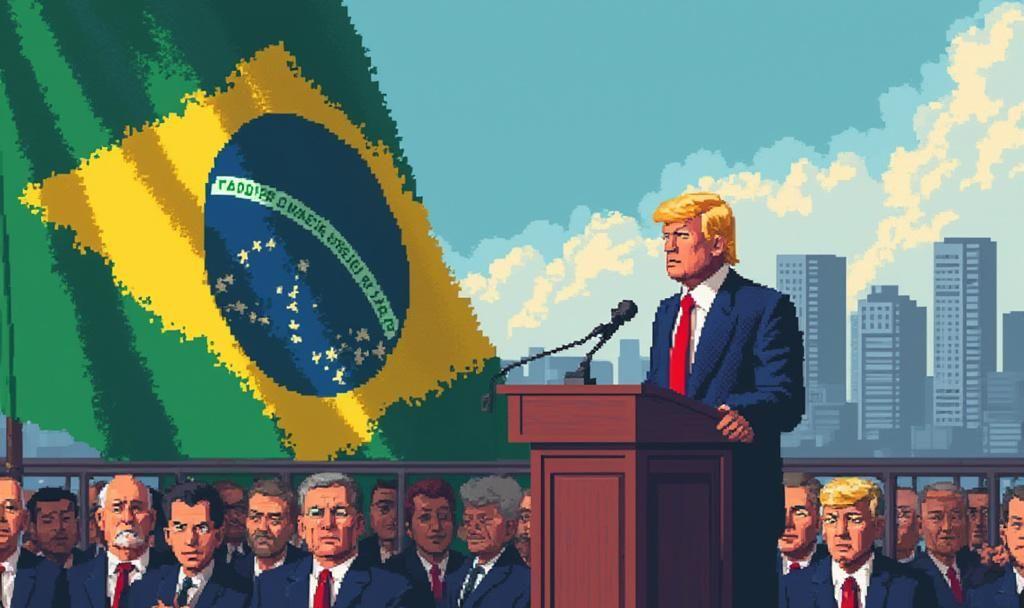Brazil’s Lula Rejects Unequal Trade Negotiations with Trump
- President Lula insists on equal terms in US trade talks.
- US imposes a 50% tariff on Brazilian imports.
- Lula condemns US economic aggressions publicly.

Brazilian President Lula stated on equal terms negotiation with Donald Trump, following US-imposed 50% tariffs on Brazilian imports, intensifying economic tension between the nations.
The tariffs could strain US-Brazil trade relations, impacting Brazilian market stability, without evident immediate effects on cryptocurrency markets from available data.
Brazil’s President Lula announced negotiations with the Trump administration over newly imposed US tariffs, insisting on fair discussions, as reported August 6.
The event raises concerns over potential impacts on Brazil-US trade and diplomatic relations, with broader economic implications for Brazilian products affected by tariffs.
US Tariffs on Brazil Prompt Lula’s Equal Terms Demand
Brazilian President Luiz Inácio Lula da Silva responded to the US’s newly imposed 50% tariffs on Brazilian goods. He asserted that negotiations would proceed on equal terms only, condemning economic aggression. “Brazil is open to trade talks with Donald Trump, but only as an equal partner,” explicitly rejecting US threats or attempts to dictate terms, said Lula.
Lula described the US’s actions as aggressive, following tariffs and sanctions on Brazilian officials. The economic pressure from such measures is expected to affect bilateral relations.
Lula’s Stance Could Alter Brazil-US Trade Dynamics
The tariffs are anticipated to substantially affect Brazilian exporters by increasing costs. Lula’s insistence on equitable negotiations might shift trade dynamics between the two countries, potentially impacting market stability.
Financial markets, particularly those related to Brazilian exports, might face heightened volatility. This decision could also influence political relations, as Brazil pushes back against perceived coercion.
Trade Measures: A Historical Tool in US Negotiations
Historically, US administrations have employed trade measures as leverage in negotiations. Similar tactics under previous governments strained bilateral trade but also prompted diplomatic dialogues.
Future outcomes might include increased diplomatic efforts or economic retaliation. Historical data suggests such disputes often lead to prolonged complex negotiations affecting global market dynamics.
| Disclaimer: The information on this website is for informational purposes only and does not constitute financial or investment advice. Cryptocurrency markets are volatile, and investing involves risk. Always do your own research and consult a financial advisor. |




